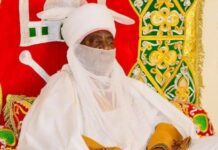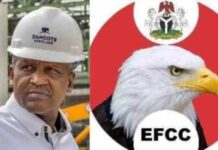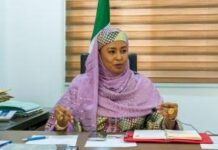Policy institute, Chatham House, says the Independent National Electoral Commission (INEC) was not fully prepared for the just-concluded 2023 presidential election.
Also known as the Royal Institute of International Affairs, Chatham House is an independent policy institute based in London. It engages governments, the private sector, civil society, and its members in open debates.
All presidential candidates, including President-elect, Bola Ahmed Tinubu, had appeared at Chatham House to defend their manifesto.
Also, Chairman of INEC, Mahmood Yakubu, had assured Nigerians while at the Chatham House, of free, fair and credible polls. Mahmood specifically said results of the polls would be transmitted from the polling units through its IReV.
However, the Chatham House in its evaluation of the poll, Associate Fellow, Africa Programme, Dr. Leena Koni Hoffmann, observed that INEC failed to adhere to its guidelines, which it enunciated before the poll, especially the real-time uploading of results.
According to Hoffmann, “The INEC’s performance and controversies over these results mean that the electoral reforms and lessons declared to have been learned were not fully applied and, as an electoral body, it was significantly less prepared than it claimed.
“The logistical failures of INEC and widespread delayed opening of polling units meant that voters, who showed up at the polls early were frustrated, and many voters and INEC staff were not able to locate their polling units for several hours,” he said.
Hoffmann said despite recurrent fuel crises, epileptic power supply, record inflation, and a painful cash crunch, Nigerians queued in the sun and rain to cast their votes
He, however, noted that thousands of voters were disenfranchised, and multiple irregularities were recorded, as well as intimidation and violence.
“Less than half of eligible voters could participate in the elections, despite the Commission’s N305 billion budgetary allocation. While Nigeria’s youth seemed energised leading up to the elections, it seems their ability to turn out is still being hugely constrained by how difficult and potentially dangerous it is to cast a vote in Nigeria.
“The INEC’s performance and controversies over these results mean that the electoral reforms and lessons declared to have been learned were not fully applied
“At just 25.7 percent, the elections have the lowest recorded turnout of any election since Nigeria returned to democracy in 1999, despite being the most expensive. These dwindling numbers highlight how Nigeria’s politics and state institutions continue to exclude rather than include.”











